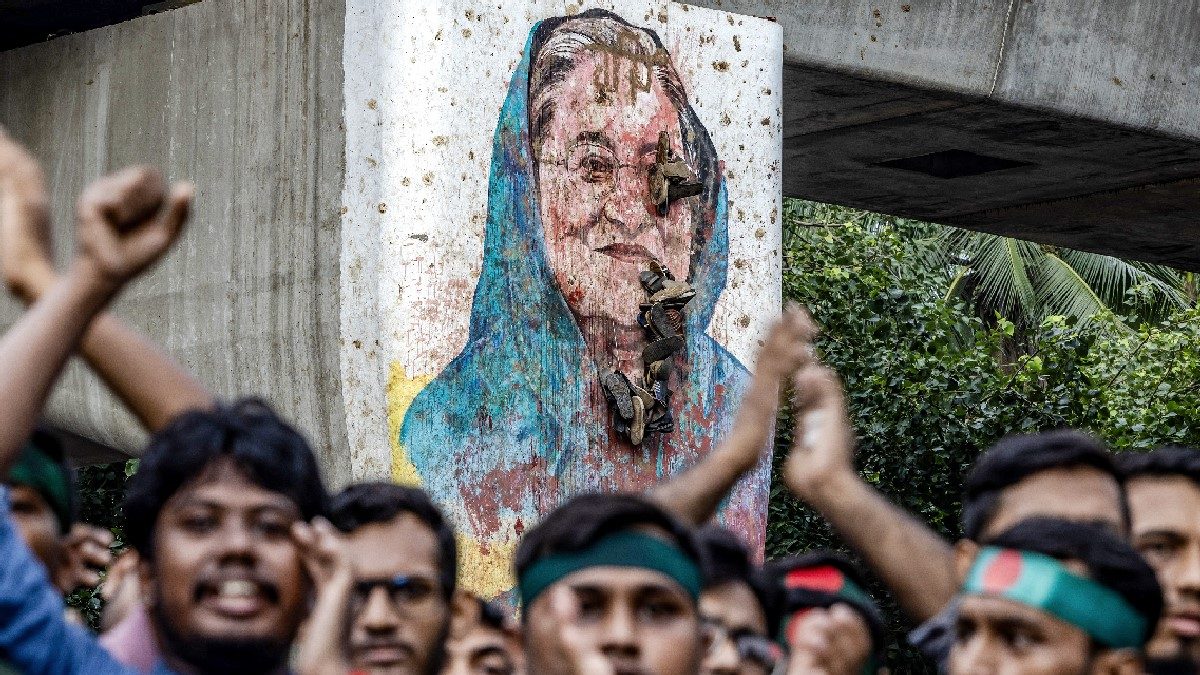The recent student-led movement that overthrew the Sheikh Hasina regime in Bangladesh has brought to light the growing influence of Islamist groups within the country. While the movement is often portrayed as spontaneous and secular, the involvement of figures like Rifat Rashid, a former member of Islami Chhatra Shibir, the student wing of Jamaat-e-Islami, points to a more complex reality. This article delves into the rising threat posed by Islamist groups in Bangladesh, the implications for India’s security, and the urgent need for proactive engagement.
The Rise of Islamist Influence
The prolonged rule of Sheikh Hasina, marred by authoritarianism and human rights abuses, has created fertile ground for the growth of Islamist groups like Jamaat-e-Islami and Hizb ut-Tahrir. These organizations, previously suppressed by Hasina’s government, have flourished in the shadows, expanding their membership and influence.
The Rise of Jamaat-e-Islami
Jamaat-e-Islami, despite facing a period of ban, has experienced a resurgence, growing from an estimated 6,000 members in 2013 to 27,000 in 2024. The organization, confident in its strength, is now openly pursuing a vision of ruling Bangladesh without relying on its former ally, the BNP, or the ruling Awami League. Its members and sympathizers have infiltrated key institutions, from the legal profession to the military.
The Spread of Militancy
The influence of extremist groups extends beyond Jamaat. Hizb ut-Tahrir, a militant organization, has gained significant ground, exploiting the lack of police presence and the Army’s reluctance to intervene. Hefazat-e-Islam, a larger and more influential Islamist group, runs thousands of religious schools, serving as breeding grounds for extremism. The return of Ansarullah Bangla Team, a local Al-Qaeda affiliate responsible for numerous attacks, including the killing of bloggers, further compounds the threat.
The Security Implications for India
The growing presence and influence of Islamist groups in Bangladesh present a serious security concern for India. The situation bears a striking resemblance to Afghanistan, where India had invested significant resources and political capital to prevent the Taliban’s takeover, only to see its efforts undone.
The Challenge of Infiltration
Bangladesh’s proximity to India, coupled with the shared Bengali language and cultural ties, makes it incredibly challenging for India to detect and disrupt Islamist sleeper cells. This poses a significant risk of terrorism spilling over into India, making it imperative to address the issue proactively.
The Need for Active Engagement
The volatile political landscape in Bangladesh necessitates India’s active and multi-pronged engagement. India must move beyond its traditional approach of prioritizing a relationship with the ruling party and focus on strengthening relationships with other influential stakeholders.
A Multi-faceted Approach
India’s strategy should encompass the following:
- Dialogue with All Stakeholders: Open and consistent communication with all major political actors, including the BNP, the AL, and even Jamaat-e-Islami, is crucial for understanding the dynamics of power and forging strategic alliances.
- Preparing for the Post-Hasina Scenario: Anticipating the likely transition of power away from Sheikh Hasina, India should actively engage with potential leaders within the Awami League. This will ensure stability and continuity in India-Bangladesh relations after the inevitable shift.
- Strengthening Ties with the Bangladesh Army: Given the potential for military rule, fostering a strong and constructive relationship with the Bangladesh Army is paramount. Engaging with key figures within the military can help shape future political outcomes and prevent potential instability.
- Addressing Extremism Through a Holistic Approach: Recognizing the multi-faceted nature of extremism, India needs to develop a comprehensive strategy to counter its spread in Bangladesh. This requires working with the Bangladeshi government to implement counter-radicalization programs, address socio-economic factors that fuel extremism, and engage in dialogue with community leaders.
Takeaway Points
The deteriorating security situation in Bangladesh demands an urgent shift in India’s approach. By engaging proactively with all stakeholders, anticipating the changing political landscape, and strengthening its ties with the Bangladesh Army, India can mitigate the growing threats posed by Islamist groups. Failure to address this challenge will not only destabilize Bangladesh but also have significant security repercussions for India, potentially creating an Afghanistan-like scenario on its eastern border.









